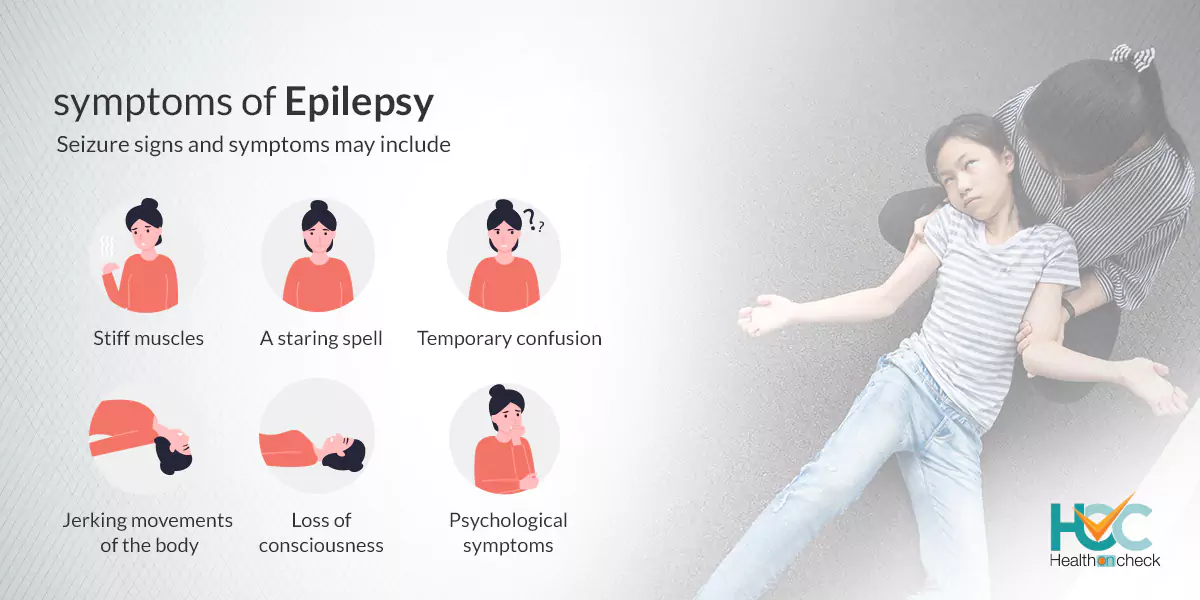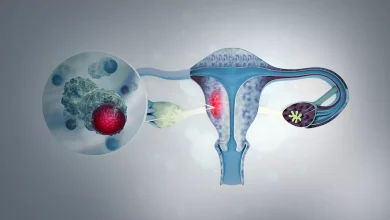All about Epilepsy

What is Epilepsy?
Epilepsy is a chronic central nervous system or neurological disorder where the nerve cell activity in the brain is disturbed or abnormal, causing several episodes of seizures and unusual behaviour, which sometimes lead to a loss of awareness or convulsion.
Epilepsy can occur to anyone and affect regardless of gender, race or ethnicity. One can develop epilepsy due to a hereditary or genetic disorder; on the other hand, it can also result from an acquired head injury.
The symptoms of seizures widely differ from person to person. It also depends upon which part of the brain is involved or getting affected. During a seizure, some people stare blankly for a few seconds while others repeatedly twitch their arms or legs. Unfortunately, though, having seizures cannot confirm having epilepsy as well. It needs two episodes of unprovoked seizures (without any known trigger) with at least a gap of 24 hours in between to be diagnosed with epilepsy.
Epilepsy is generally treated by taking proper medication and sometimes by doing surgery and making some dietary changes. In the case of some children with epilepsy, it’s observed that they outgrow the condition with growing up.
What are the types of epilepsy?
Doctors generally classify seizures depending on the position of the brain in which they start and the type of symptoms.
Focal seizures: If it occurs on only one side of the brain
- Focal aware seizures generally refer to when one is awake and can respond to others
- Focal impaired seizures mean one is not completely aware of things happening around
- Focal motor seizures make the whole-body twitch, tremble or move in other ways
- Focal non-motor seizures affect the way one feels or think
Generalised seizures: It starts on both sides of the brain.
- Generalised motor seizures make the body twitches or move
- Generalised non-motor seizures don’t cause any movement
What are the symptoms of Epilepsy?
Epilepsy is caused due to upsurge of abnormal electric activity in the brain, followed by seizures that can affect how one’s brain coordinates.
Seizure signs and symptoms may include:
- Stiff muscles
- A staring spell
- Temporary confusion
- Jerking movements of the body- arms and legs
- Convulsion or Loss of consciousness or awareness
- Psychological symptoms can be seen, such as anxiety, fear or déjà vu
Epilepsy symptoms, therefore, vary depending on the seizure type. However, in most cases, the person with epilepsy experiences the same seizure episode each time. So, the kind of symptoms in every episode of seizure occurrence is the same.
Doctors usually classify seizures into two categories. First, it can be focal or generalised, based on the brain location, as in how and where the abnormal brain activity begins.
Focal Seizure:
When seizures occur due to abnormal activity in only part of the brain, they’re called focal seizures. Focal seizures can be categorised into two:
Focal seizures without loss of consciousness, which doesn’t cause a loss of awareness or convulsion. Some people may experience deja vu. Some may change how things are, how they look, smell, feel, taste or sound. This type of seizure can also result in sensory symptoms such as dizziness, tingling, flashing lights or involuntary jerking of one body part, such as the leg or arm.
Focal seizures with impaired awareness, in which the change of consciousness is observed. It may feel like being in a dream. During a focal seizure with impaired awareness, one may not normally respond to their surroundings or perform repetitive activities like chewing, rubbing hands or walking in circles. It often gets confused with migraine, a narcolepsy-like neurological condition. Therefore, it’s necessary to have a thorough checkup to distinguish epilepsy from other neurological disorders
Generalised seizures:
When Seizures appear to result due to involving all parts of the brain, they are called generalised seizures.
There are six types of generalised seizures:
- Tonic Seizures affect muscles in your arms legs, and back and make them stiff. In addition, it may affect one’s consciousness and make one fall onto the ground.
- Absence seizures, which commonly occur in children. It can cause brief convulsions and be characterised by lip-smacking or staring into space without such body movements.
- Atonic seizures,also commonly known as drop seizures. It can cause a sudden loss of muscle control and affect the leg the most. So, very often, it causes sudden collapse.
- Clonic seizures, usually affect the neck, face and arms. Clonic seizures are associated with trembling or jerking muscle movements
- Myoclonic seizures, which affect the upper body, arms and legs and sudden twitches or brief jerks appear
- Tonic-clonic seizures can be very serious. It causes a sudden loss of consciousness or abrupt body stiffening, followed by shaking and twitching. it can also end up with conditions like a biting tongue or loss of bladder control.
What are the causes of epilepsy?
- Genetic influence: sometimes, it can be in the bloodline. The type of seizure one experiences can be found in one of the family members.
- Head trauma. Sometimes epilepsy can be developed after suffering from head trauma like a car accident or any other heavy head injury.
- Brain abnormalities. Brain abnormalities due to brain tumours, strokes, or vascular malformations result in epilepsy.
- Infections. Parasitic infections like viral encephalitis, Meningitis, and HIV can cause epilepsy.
- Prenatal injury. Due to an infection in the mother, oxygen deficiencies or poor nutrition, the baby’s brain can get damaged before birth, which can, later on, result in epilepsy or cerebral palsy.
- Developmental disorders, a developmental disorder like autism, can sometimes be associated with epilepsy.
- Risk factors associated with epilepsy
Some factors may increase the risk of epilepsy:
- Age. Although epilepsy can occur at any age, the onset of it is most common in children and older age.
- Family history. If someone in the family history already has a history of epilepsy, it creates an increased risk of developing a seizure disorder.
- Avoid Head Injuries
- Stroke and other vascular diseases may trigger epilepsy.
- Dementia. Dementia increases the risk of epilepsy in older adults.
- Seizures in childhood. If a child experiences long fever-associated seizures, a family history of epilepsy or another nervous system condition, more likely to develop seizure
How can you diagnose Epilepsy?
If you experience symptoms or recurring seizures, then visit a doctor immediately. It’s always better to take a health expert’s opinion. After reviewing your symptoms and family history, he will suggest the following tests:
- Neurological exam- Where your behaviour, motor abilities, etc., will be diagnosed to determine the condition and the type of epilepsy you might have
- Blood tests- your blood sample will be taken to diagnose if you have any infection, genetic conditions or anything that might be related to the occurrence of the seizure.
- The doctor may also suggest tests like MRI or EEG to detect any brain abnormalities.
Treatment
How to treat epilepsy?
Epilepsy is a serious neurological condition which requires doctors’ prescribed medications such as AEDs (Anti-Epileptic Drugs), Nerve pain medication, anticonvulsants, etc. In some cases, surgery, devices and dietary changes are also required.
What are the complications of epilepsy?
As epilepsy causes the sudden occurrence of seizures, convulsions or muscle stiffness, it can often lead to serious complications, such as the following:
- Falling- Sudden seizure can lead to falling, which can be followed by serious injuries to the body
- Drowning –having a seizure in water can lead to drowning, which should be avoided.
- Car accidents- Due to seizures, one can lose awareness, which is very dangerous while driving.
- Pregnancy complications- Seizures can be dangerous for both mother and the baby. Therefore, it’s ideal to talk with a health expert and plan for the pregnancy accordingly.
- Most women can become pregnant with epilepsy and can have healthy babies. Tone needs to be monitored well, and medications may need to be adjusted accordingly. It’s always ideal to consult a doctor and plan pregnancy accordingly.
- Emotional health problems- People with epilepsy are more likely to have psychologically or emotionally able. Therefore, they often end up being depressed, suicidal, and anxious.
Some life-threatening complications of epilepsy can include:
- Status epilepticus, where seizure is more frequent and the activity lasts more than five minutes, one cannot get fully conscious even in between. There is a higher chance of developing permanent brain damage and eventually death.
- Sudden unexpected death in epilepsy (SUDEP), can occur due to heart or respiratory failure. It’s very uncommon, and the exact reason behind it is unknown.
Living with Epilepsy:
Most people live a healthy life with epilepsy. Children who experience a recurring seizure at an early stage mostly end up outgrowing it with age. The adults also can manage it and live a normal life by maintaining some of the following:
- Get help from the medical expert
- Taking prescribed medicines regularly
- Know the disease and recognize the seizure triggers
- Avoid flashing or bright light
- Keep a record of seizures
- Get enough sleep and lower stress
- Avoiding recreational drugs and alcohol
- Avoid getting the flu or anything that causes high fever
Whom to consult
If you experience symptoms associated with epilepsy or seizure, immediately consult a neurologist who specialises in the brain and nervous system. The doctor will review and give necessary tests to diagnose and treat you accordingly.





